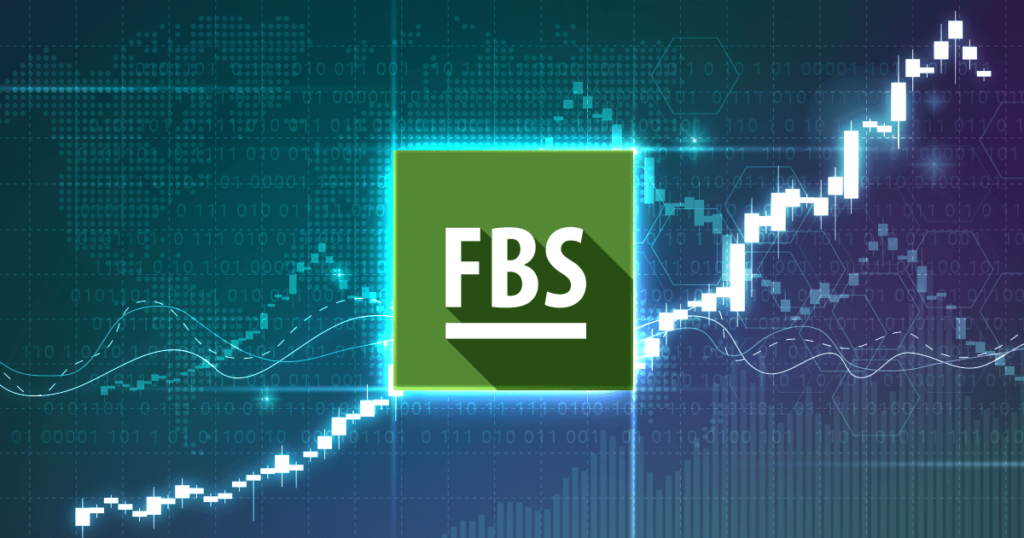The Forex market, short for Foreign Exchange, is one of the largest financial markets in the world, with a daily turnover of over $6 trillion. It provides immense opportunities for traders to profit by buying and selling currencies based on price fluctuations. In Kenya, Forex trading has seen a surge in popularity as more individuals and institutions look to capitalize on this global market.
However, the success of your Forex trading is not solely dependent on market knowledge, strategies, or timing. One of the most critical decisions you will make is choosing the best Forex broker in Kenya. A good broker provides the necessary tools, support, and trading conditions to help you achieve success in the Forex market. A poor choice can lead to unexpected risks, losses, or even fraud.
This article will guide you through the essential factors to consider when selecting the best Forex broker for trading in Kenya. We will look at licensing, regulation, platform choices, trading conditions, fees, customer support, and other vital aspects to help you make an informed decision.

Comparison of Top Forex Brokers in Kenya: Analyzing the Best Options
Choosing the best Forex broker in Kenya can be a daunting task, especially with so many options available. To help you navigate the market, let’s look at a comparison of some of the top brokers operating in Kenya. We will highlight their key features, strengths, and what makes them stand out for local traders.
1. Exness
Exness is one of the most popular Forex brokers in Kenya and around the world, known for its user-friendly platform and strong regulatory credentials. Here’s why it stands out:
- Regulation: Exness is regulated by top-tier bodies such as the Financial Conduct Authority (FCA) and Cyprus Securities and Exchange Commission (CySEC), providing traders with a high level of security.
- Spreads and Fees: Exness offers competitive spreads starting as low as 0.1 pips on major currency pairs. It also provides commission-free accounts, which is attractive for traders looking for low-cost options.
- Customer Support: Exness offers 24/7 customer support via live chat, email, and phone, ensuring that traders can get assistance whenever needed. Their support team is highly rated by Kenyan traders for being responsive and knowledgeable.
- Trading Platforms: Exness supports both MetaTrader 4 (MT4) and MetaTrader 5 (MT5), along with mobile apps for trading on the go.
Strengths:
- Highly regulated and trustworthy.
- Tight spreads and low commission options.
- Excellent customer support in multiple languages.
Considerations:
- Higher minimum deposit requirements on some accounts.
- Limited range of educational resources compared to some competitors.
2. FBS
FBS is a widely known Forex broker that has been popular in Kenya for its variety of account types and flexible trading conditions. FBS has managed to carve out a niche by providing excellent services to both new traders and experienced investors.
- Regulation: FBS is regulated by the International Financial Services Commission (IFSC) of Belize and offers an additional layer of trust through its membership in the Investor Compensation Fund. While not as highly regulated as brokers like Exness or IC Markets, FBS still provides a secure trading environment.
- Spreads and Fees: FBS offers competitive spreads that start from 0.0 pips on ECN accounts. Traders can choose from commission-free accounts or accounts with small commission fees, depending on their needs.
- Trading Platforms: FBS provides the popular MetaTrader 4 (MT4) and MetaTrader 5 (MT5) platforms, both of which are compatible with desktop and mobile devices.
- Customer Support: FBS offers 24/7 customer support through phone, email, and live chat. They are known for their prompt responses and multilingual support services, making them a preferred choice for Kenyan traders.
- Education and Resources: FBS offers a solid selection of educational resources, including webinars, trading tips, and video tutorials aimed at both beginner and intermediate traders. These resources also cover advanced concepts, such as identifying patterns like the diamond pattern, which can help traders predict potential market reversals and refine their trading strategies.
Strengths:
- Offers a variety of account types catering to different traders.
- Highly flexible trading conditions with low spreads.
- Great educational resources and trading tools for beginners.
Considerations:
- Limited regulatory oversight compared to some larger brokers.
- May not be suitable for advanced traders who need more complex tools.
3. IC Markets
IC Markets is another globally recognized broker offering a range of services for Forex traders in Kenya. Known for its advanced technology and transparent pricing, IC Markets is an excellent choice for both beginner and experienced traders.
- Regulation: IC Markets is regulated by ASIC (Australia) and CySEC (Cyprus), ensuring that they meet strict financial standards and provide a safe trading environment.
- Spreads and Fees: IC Markets offers some of the lowest spreads in the industry, with spreads starting at 0.0 pips for ECN accounts. However, it charges a small commission on trades, which is typical for ECN brokers.
- Trading Platforms: IC Markets supports MetaTrader 4 (MT4), MetaTrader 5 (MT5), and cTrader, providing traders with flexibility and advanced trading tools.
- Education and Resources: IC Markets provides a variety of educational resources, including video tutorials, webinars, and a comprehensive FAQ section. However, their educational materials may not be as extensive as some brokers.
Strengths:
- Extremely low spreads and transparent pricing.
- A wide range of platforms and advanced trading tools.
- Regulated by top-tier authorities.
Considerations:
- Commission fees can add up for frequent traders.
- Some traders report that customer service response times could be faster.
4. AvaTrade
AvaTrade is a globally recognized Forex broker with a solid reputation for providing comprehensive trading services and a wide range of financial instruments. It’s a great choice for Kenyan traders who want to trade beyond just currency pairs.
- Regulation: AvaTrade is regulated by several authorities worldwide, including the Central Bank of Ireland, ASIC in Australia, and FSA in Japan. This makes AvaTrade a safe and reliable option for Kenyan traders.
- Spreads and Fees: AvaTrade offers competitive spreads, starting from 0.9 pips for major currency pairs. They offer both fixed and floating spreads, allowing you to choose based on your trading preferences.
- Trading Platforms: AvaTrade offers MetaTrader 4 (MT4), MetaTrader 5 (MT5), and their proprietary AvaTradeGo app, which is designed for mobile trading. AvaTradeGo is praised for its simple interface and ease of use.
- Education and Resources: AvaTrade provides a range of educational resources, including online courses, webinars, and an educational blog. They also offer trading guides and eBooks suitable for both beginners and advanced traders.
Strengths:
- Wide range of financial instruments, including Forex, stocks, indices, and commodities.
- Excellent regulatory framework with global coverage.
- Comprehensive educational materials.
Considerations:
- Spread may be higher compared to ECN brokers.
- AvaTrade’s trading platforms might be less flexible than those of some competitors.
5. HotForex
HotForex is a well-established Forex broker that offers a wide range of trading accounts, competitive spreads, and a solid platform for both new and experienced traders in Kenya.
- Regulation: HotForex is regulated by top-tier authorities such as the Financial Services Commission (FSC) in Mauritius and CySEC in Cyprus. It also offers Investor Compensation Fund (ICF) protection for its European clients.
- Spreads and Fees: HotForex offers competitive spreads with fixed spreads starting from 1.2 pips on major currency pairs. While its spreads are higher than those of ECN brokers, they are still reasonable for retail traders.
- Trading Platforms: HotForex provides MetaTrader 4 (MT4) and MetaTrader 5 (MT5), with the option to use them via desktop or mobile devices. It also offers an integrated WebTrader for trading directly from your browser.
- Education and Resources: HotForex offers a variety of educational materials, including webinars, trading guides, and video tutorials. However, their educational content is primarily focused on beginner and intermediate traders.
Strengths:
- Excellent regulatory oversight with protection for investors.
- Multiple account types tailored to different trading styles.
- Strong educational offerings for beginners.
Considerations:
- Higher spreads compared to ECN brokers.
- Limited advanced tools and resources for professional traders.
Licensing and Regulation: Why It Matters
The Importance of Regulation
One of the most important aspects of choosing the best forex brokers in Kenya is whether or not they are regulated. Regulatory bodies exist to ensure that brokers follow strict guidelines to protect traders from fraud and other illegal activities. They enforce standards on transparency, fairness, and the treatment of clients’ funds. A regulated broker is more likely to be trustworthy, as they are required to operate with a high level of accountability.
Local Regulations in Kenya
In Kenya, the Capital Markets Authority (CMA) is the main regulator overseeing the activities of Forex brokers. The CMA ensures that brokers operating in Kenya comply with local laws and regulations. The authority’s role is to protect Kenyan traders from fraud and unethical practices. Some key regulations that brokers must adhere to include:
- Segregation of client funds: Brokers must keep client funds in separate accounts from their operational funds, ensuring that your money is safe in case the broker faces financial difficulties.
- Transparency: Brokers are required to provide clear information on their trading conditions, including spreads, fees, and order execution processes.
- Fair advertising: The CMA ensures that brokers do not engage in misleading advertising or promises of unrealistic returns.
International Regulation: Additional Layers of Protection
While regulation by the CMA is important for Kenyan traders, selecting a broker that is also licensed by international regulatory bodies can add an additional layer of protection. Notable regulators include:
- Financial Conduct Authority (FCA) in the UK
- Australian Securities and Investments Commission (ASIC)
- Cyprus Securities and Exchange Commission (CySEC) These regulatory bodies are known for their stringent rules that ensure fair and transparent trading conditions. Choosing a broker regulated by one of these authorities can provide more security, especially if the broker has a global client base.
Why Does Regulation Matter?
When you choose a regulated broker, you are assured of:
- Client fund protection: Your funds are kept in segregated accounts and may be insured up to a certain amount.
- Transparency: Regulated brokers are required to display accurate information regarding their services, costs, and risks.
- Accountability: If a regulated broker engages in fraud or unethical practices, they can face penalties, suspension, or even revocation of their license.
Choosing a licensed and regulated broker is the first step in ensuring a safe and secure trading experience in the Forex market.
Types of Forex Brokers: Choosing the Right Fit
Forex brokers can be categorized into different types based on how they execute and process trades. Understanding these types will help you select the right broker for your trading style and strategy.
Market Makers
Market Makers are brokers that create their own bid (buy) and ask (sell) prices, which means they act as the counterparty to your trades. These brokers provide liquidity to the market by setting the prices themselves, rather than relying on the interbank market or other liquidity providers.
Advantages:
- Fixed spreads: Market makers often offer fixed spreads, which can make it easier to calculate trading costs. This is particularly useful for beginners.
- Predictable trading conditions: Because market makers set their prices, traders know exactly what to expect regarding costs and order execution.
- Lower minimum deposit requirements: Market makers typically have lower deposit requirements, which is attractive to new traders with limited capital.
Disadvantages:
- Potential conflicts of interest: Because market makers take the opposite side of your trades, there could be a conflict of interest. This means that, in some cases, they might benefit when you lose, leading to concerns over transparency.
- Less liquidity: The liquidity provided by market makers can sometimes be lower than that of other brokers, especially during high volatility.
- Less flexibility: Market makers may not offer as many trading options or as wide a range of currency pairs as ECN or STP brokers.
ECN Brokers
ECN (Electronic Communication Network) brokers provide direct access to the interbank market and connect you with liquidity providers. Unlike market makers, ECN brokers do not set the buy and sell prices, but rather pass on the prices they receive from liquidity providers.
Advantages:
- Lower spreads: ECN brokers typically offer much lower spreads, especially on major currency pairs, because they don’t mark up the prices themselves.
- No interference: ECN brokers don’t take the opposite side of your trade, so there is no conflict of interest. Your order is sent directly to the market.
- Greater liquidity: Because ECN brokers aggregate liquidity from multiple providers, they offer more depth and better execution speeds, which can be crucial for active traders.
Disadvantages:
- Commission fees: ECN brokers often charge a commission on each trade, which can make trading more expensive for those who execute many trades.
- Higher minimum deposit: ECN brokers typically require a larger initial deposit compared to market makers, making them less accessible to beginner traders.
- Complexity: ECN brokers are often preferred by advanced traders due to their sophisticated execution models and lower spreads.
STP Brokers
STP (Straight Through Processing) brokers transmit orders directly to liquidity providers, similar to ECN brokers. However, STP brokers typically operate on a simpler model, and they may charge either a commission or mark up the spread slightly.
Advantages:
- Faster execution: STP brokers offer quicker execution times compared to market makers, making them ideal for traders who rely on fast market movements.
- No conflict of interest: Like ECN brokers, STP brokers don’t take the opposite side of your trades.
- Transparent pricing: STP brokers generally offer transparent pricing and provide direct access to the market.
Disadvantages:
- Variable spreads: STP brokers may offer variable spreads, which can widen during periods of high market volatility.
- Higher costs: Depending on the broker, spreads can be higher than those of market makers, and commissions may apply.
Which Broker is Best for You?
The choice of broker depends on your experience level and trading style:
- For Beginners: A market maker broker is often the best option due to their user-friendly platforms, lower minimum deposit requirements, and fixed spreads.
- For Active or Professional Traders: An ECN or STP broker is better suited to traders who are looking for tighter spreads, faster execution, and direct market access.
Key Takeaways:
- Market makers offer fixed spreads and are best for beginners.
- ECN brokers offer low spreads and direct market access, making them ideal for advanced traders.
- STP brokers offer faster execution and transparent pricing but may have higher spreads.
Trading Platforms and Technology: The Foundation of Your Trading Experience
Your trading platform is the primary tool you will use to execute trades, analyze the market, and monitor your portfolio. Therefore, it’s essential to choose a broker that provides a reliable and robust trading platform. Here’s what to look for when evaluating a broker’s platform:
Popular Trading Platforms
- MetaTrader 4 (MT4): MT4 is one of the most popular and widely used trading platforms in the Forex market. It offers a simple, user-friendly interface, excellent charting tools, and robust automation features through Expert Advisors (EAs). MT4 is ideal for both beginners and experienced traders.
- MetaTrader 5 (MT5): MT5 is the successor to MT4 and includes additional features like more timeframes, more order types, and an integrated economic calendar. MT5 is great for traders who need more advanced tools and want to trade a wider range of assets such as commodities, stocks, and indices.
- cTrader: Another popular platform, cTrader offers advanced charting capabilities, faster execution, and a streamlined interface. It is especially favored by traders who prefer using ECN brokers.
Key Platform Features
- User Interface: The platform should be easy to navigate. A clean, well-organized interface helps you focus on trading rather than struggling with complex navigation.
- Mobile Trading: Look for brokers offering mobile apps for trading on the go. The mobile platform should have the same functionality as the desktop version.
- Charting and Technical Analysis Tools: Advanced charting tools, technical indicators, and drawing tools are essential for analyzing market trends. Platforms like MT4 and MT5 offer extensive charting options, including multiple timeframes and customizable indicators.
- Order Execution Speed: The platform should allow for fast and reliable order execution, especially if you are involved in high-frequency trading or scalping. Slow execution can result in slippage and losses.
Choosing the Best Forex Broker in Kenya for Your Needs
Choosing the best Forex broker in Kenya involves more than just finding a broker with low fees and tight spreads. It requires evaluating factors such as regulation, customer support, educational resources, trading platforms, and overall reputation. Each trader has different needs and preferences, and the right broker will depend on your individual trading style, experience, and risk tolerance.
- Beginners might prioritize brokers with lower minimum deposits, educational resources, and user-friendly platforms like Exness or HotForex.
- Experienced traders may prefer IC Markets or FBS, which offer advanced tools, low spreads, and direct market access.
- Those seeking a broader range of financial instruments might find AvaTrade appealing, as it offers not just Forex but also indices, commodities, and even stocks.
Ultimately, the right broker is one that aligns with your trading goals, provides a secure environment, and offers reliable support and resources. By carefully considering the factors discussed in this guide, you can make an informed decision and start your Forex trading journey on the right foot.
Remember, while the Forex market offers significant profit potential, it also carries risks. Always take the time to understand your broker’s trading conditions and conduct thorough research before opening a trading account.








